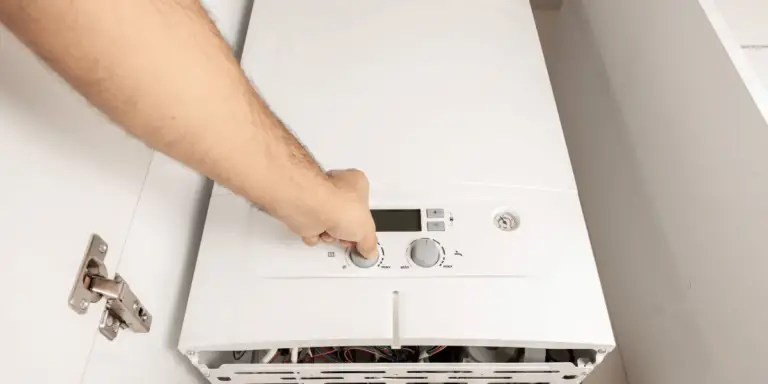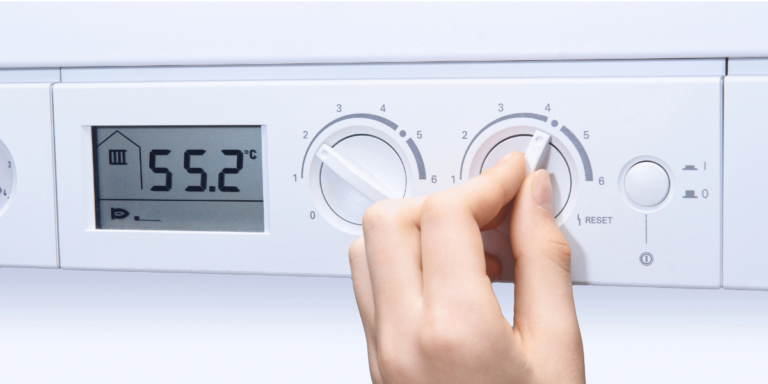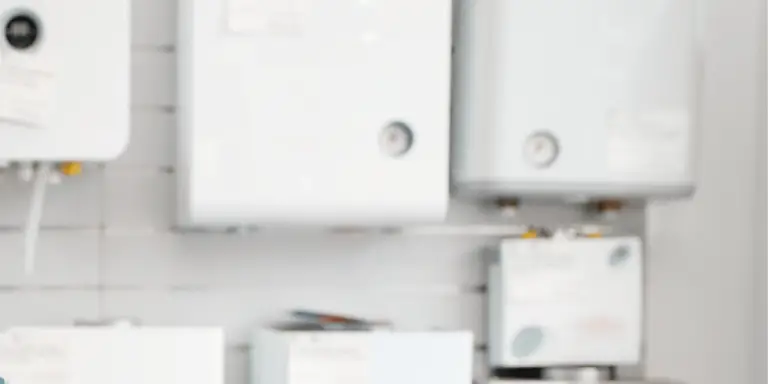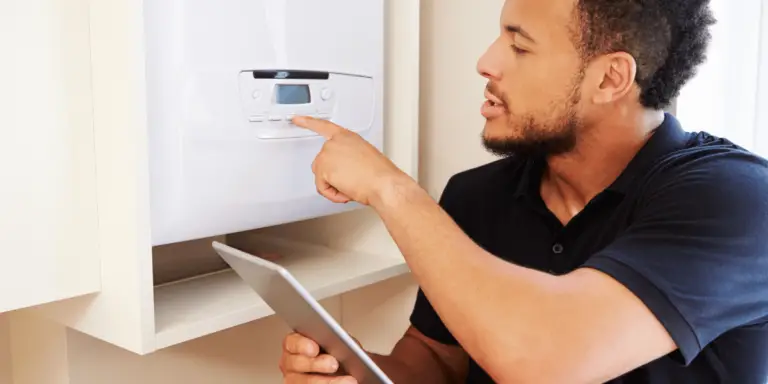Installing a boiler in your bathroom is possible, but there are many safety regulations and considerations that need to be taken into account. To ensure the installation of your boiler goes smoothly, it’s important to understand the UK Regulations, Bathroom Zones, IP Ratings, Ventilation Requirements and Building Regulations involved.
Key Takeaways
- Compliance with bathroom boiler regulations is essential for safety and to avoid penalties.
- Different types of boilers, such as combi, system, and electric boilers, are suitable for bathroom installations depending on requirements and regulations.
- Bathrooms are divided into zones based on proximity to water sources, and each zone has specific regulations for electrical equipment, including boilers.
- Adequate ventilation is crucial for bathroom boiler installations to remove moisture and prevent condensation, and regulations specify minimum ventilation requirements for different zones.
Considerations for Bathroom Boiler Installation:
Before we delve into the specifics of installing a boiler in your bathroom, it’s crucial to understand the key considerations that govern this process. From adhering to UK regulations to understanding bathroom zones and IP ratings, each aspect plays a significant role in ensuring a safe and efficient installation. Let’s explore these considerations in detail:
- UK Regulations: The installation of boilers in bathrooms is governed by strict regulations in the UK. These regulations are in place to ensure the safety of individuals and to prevent any potential hazards. It’s important to familiarize yourself with these regulations before proceeding with the installation.
- Bathroom Zones: Bathrooms are divided into different zones based on their proximity to water sources. Each zone has specific requirements for electrical installations, including boilers. Understanding which zone your bathroom falls into will help determine the type of boiler that can be installed and any additional safety measures that may be required.
- IP Ratings: IP ratings, or Ingress Protection ratings, indicate the level of protection a device has against the intrusion of solid objects and water. When installing a boiler in a bathroom, it’s important to choose a boiler with an appropriate IP rating to ensure it is protected against water ingress.
- Ventilation Requirements: Proper ventilation is crucial when installing a boiler in a bathroom. The steam and condensation produced by the boiler need to be adequately ventilated to prevent dampness and mould growth. It’s important to consider the ventilation requirements and ensure they are met during the installation process.
- Building Regulations: In addition to the specific regulations for boiler installations in bathrooms, there are also general building regulations that need to be followed. These regulations cover aspects such as gas safety, flue requirements, and structural considerations. It’s important to consult with a qualified professional to ensure compliance with all relevant building regulations.
With the right research and expert advice, you can have peace of mind knowing that your boiler has been installed safely and compliantly. Let this article help guide you through the process so you can feel confident when installing a boiler in your bathroom.
UK Regulations
When installing a boiler in the bathroom, it is important to comply with UK regulations. These regulations specify safety standards and ventilation requirements to ensure a safe and compliant installation.
Consulting a qualified professional is essential for conducting a suitability assessment and considering the options for the type of boiler and energy efficiency. If you have a gas supply, combi or system boilers are commonly installed, while electric boilers are ideal if you don’t.
For energy efficiency, it is recommended to opt for condensing boilers. Depending on the zones of your bathroom, you may also need to install mechanical ventilation systems in some cases. Gas safety measures must be taken into account if you choose gas-powered boilers.
To ensure safety and reliability in wet environments, it is important to consider IP ratings as well. Hiring a qualified professional is highly recommended for your boiler installation as it guarantees proper functioning and adherence to regulations.
Thorough consultation and research will help ensure successful results!
Bathroom Zones
In a bathroom, there are four zones defined for the purpose of electrical safety, each with different requirements for the type of electrical equipment that can be installed.
Zone 0 is the area inside the shower itself. Any electrical equipment installed in this zone needs to have a minimum IP rating of IP67, which means it is completely protected against dust and can be immersed in water up to 1 meter in depth.
Zone 1 is the area above the bath and reaches a height of 2.25 meters above the floor. Electrical equipment in this zone requires a rating of at least IP44, but it’s recommended to opt for equipment that is IP65 rated or greater. If a light fitting in Zone 1 uses mains voltage, it must be protected by a Residual Current Device (RCD).
Zone 2 includes the area that is located 0.6 meters beyond the outer perimeter of the wash basin or bath, and up to 2.25 meters above the floor. Any electrical equipment installed in Zone 2 needs an IP rating of no less than 44, which means it is protected against solid objects larger than 1mm and water splashing from any direction.
Lastly, Zone 3 is the only zone where a boiler may be installed in a bathroom. This area is considered the safest for electrical equipment because it’s the zone of a bathroom without any significant risk of water exposure. Equipment that is IP20 rated would be suitable here, which means it is protected against solid objects larger than 12.5mm but not designed to withstand any water ingress.
Remember, these zones and their requirements are defined in the context of UK regulations and may vary in different countries. Always consult with a qualified professional or your local building regulations for specific guidance.
IP Ratings
Ingress Protection (IP) ratings are used to define the levels of sealing effectiveness of electrical enclosures against intrusion from foreign bodies and moisture. The IP rating IPX4 is particularly relevant when discussing the installation of boilers.
An IPX4 rating specifically refers to the protection against water splashes from any direction. This means that the electrical equipment, in this case, the boiler, is designed to withstand splashing water from all sides. This is crucial for ensuring the safe operation of the boiler, especially in environments where water splashes can occur.
When a boiler has an IPX4 rating, it means it’s suitable for installation in areas where it might be exposed to water splashes, such as near a sink or in a utility room. However, even with this rating, a boiler should not be installed inside the zones 0, 1, or 2 of a bathroom due to the higher risk of water exposure in these areas.
Always remember that the installation of a boiler should be carried out by a qualified professional who will ensure that the chosen location and the boiler’s IP rating comply with all safety regulations. Always refer to the manufacturer’s instructions and local building regulations for specific guidance.
Ventilation Requirements
Adequate ventilation is crucial for the safe installation of any electrical equipment in bathrooms. You must ensure that your boiler has access to a proper airflow, mechanical ventilation, and adequate moisture prevention to prevent condensation.
Different bathroom zones have their own regulations when it comes to ventilation: Zone 0 requires the highest level of protection due to its proximity to water sources, while Zone 2 may require less stringent measures.
It’s important to be aware of local regulations and make sure your boiler meets all necessary requirements in terms of ventilation. A professional installer can help you determine the right kind of ventilations system for your bathroom and ensure that it complies with safety standards.
Don’t forget that proper airflow is essential for preventing future problems and keeping your boiler functioning properly!
Building Regulations
When it comes to installing any electrical equipment in your bathroom, you must make sure it meets all necessary building regulations for safety and quality.
Boiler placement is key; making sure it’s away from water sources in the right zone and has adequate ventilation are vital safety measures. Professional expertise is recommended when handling gas installation, as well as regular maintenance checks.
Building regulations also cover other aspects such as ventilation and electrical safety; non-compliance can lead to legal consequences. Therefore, trust a professional to ensure your boiler meets all requirements and is installed correctly.
Working with an expert will give you peace of mind that everything has been taken into consideration for a compliant and secure installation, helping you feel at ease in your home.
Conclusion
Alright, let’s wrap this up! Installing a boiler in your bathroom is a bit like a puzzle. It’s all about fitting together different pieces – bathroom zones, IP ratings, ventilation, and building regulations. But remember, it’s also about creating a warm, cosy, and safe space in your home.
Don’t forget, while it’s great to understand the ins and outs, the actual installation should be left to the professionals. They’re the experts, after all. So, sit back, relax, and let them take care of the heavy lifting.
In the end, it’s all about making your home the best it can be. So here’s to a successful boiler installation and many warm, cosy days ahead!






